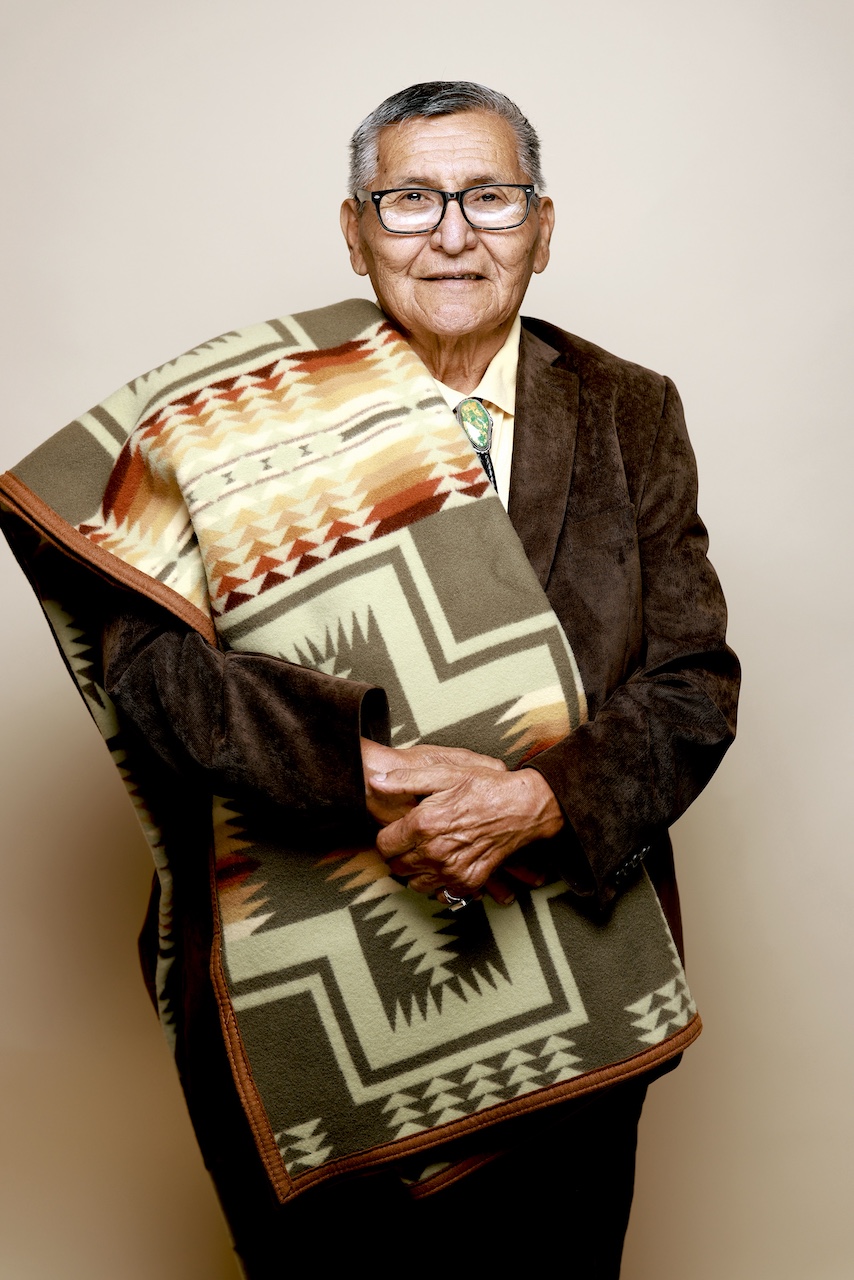
- Details
- By Levi Rickert
The Navajo Nation announced today the passing of former President Ben Shelly from a long-term illness on Wednesday, March 22, 2023.
Shelly served as an elected official to the Navajo Nation in several capacities, including serving on the Navajo Nation Council as vice president and president from 2011— 2015. President Shelly was 75.
Shelly’s death on Wednesday marks the second time within the past month the Navajo Nation is mourning the death of a former president. His passing comes 15 days after the loss of former President Peterson Zah, who passed away on March 9, 2023.
Two months ago, Shelly attended the inauguration of current Navajo Nation President Buu Nygren on January 10, 2023. After his election in November, Nygren met with several former Navajo leaders, including Shelly, in December at Twin Arrows Casino, a tribal casino owned and operated by the Navajo Nation.
President Nygren said he met Shelly several times when he was a student at Arizona State University and remembered the former president as a bold leader.
“He was very straightforward,” President Buu Nygren said. “He was always courageous. I think with that type of fearless attitude, just being a heavy equipment operator, to ascend to be president of the Navajo Nation is something to be said for his type of leadership style. Jasmine and I want to extend our condolences to his family.”
Navajo Nation Council Speaker Crystalyne Curley said after President Shelly’s death: “On behalf of the 25th Navajo Nation Council, I offer my thoughts and prayers for Martha and their entire family during this difficult time. President Shelly will always be remembered in our hearts and minds for his great sense of humor, devoted public service, and his love for his people and family. We mourn the loss of our leader, but we honor and give thanks for his life and the legacy that he leaves behind.”
A long-time Navajo Nation leader, Shelly served as a member of the Navajo Nation Council from 1991 to 2007, representing the community of Thoreau, New Mexico, before being elected as Vice President of the Navajo Nation from 2007 to 2011 and eventually becoming the president from 2011 to 2015. He also served as County Commissioner for McKinley County for eight years.
Shelly was Tó’aheedlíinii and was born for Ts’ah Yisk’idnii. His maternal grandfather was Áshįįhí, and his paternal grandfather was Táchii’nii. He was married for 57 years to Martha Shelly, originally of Coyote Canyon. Together, they have five adult children, 12 grandchildren, and three great-grandchildren.
Shelly remained active in Navajo leadership after stepping down from office. He and his family have operated a transportation business for the last seven years.
Erny Zah, director of communications and media affairs at Navajo Transitional Energy Company (NTEC), who previously served as Shelly’s press officer, recalled President Shelly’s role in establishing NTEC with his signing of legislation on May 3, 2013. The enactment of the bill allowed NTEC to own and operate the mine.
President Shelly’s family will be holding a private service for the former president. The Office of the President and Vice President is also coordinating with the family to hold a public memorial in honor of President Shelly. The Office of the President and Vice President will issue a proclamation calling for all flags on the Navajo Nation to be flown at half-staff in honor of President Shelly.
More Stories Like This
Native News Weekly (August 25, 2024): D.C. BriefsDeb Haaland Earns Endorsement From Communications Workers of America Local 7076
University Soccer Standout Leads by Example
Two Native Americans Named to Democratic Congressional Campaign Committee's“Red to Blue” Program
Cheyenne River Youth Project Hosts Young Women’s Winter Camp as Part of Lakota Culture Internship
Help us defend tribal sovereignty.
At Native News Online, our mission is rooted in telling the stories that strengthen sovereignty and uplift Indigenous voices — not just at year’s end, but every single day.
Because of your generosity last year, we were able to keep our reporters on the ground in tribal communities, at national gatherings and in the halls of Congress — covering the issues that matter most to Indian Country: sovereignty, culture, education, health and economic opportunity.
That support sustained us through a tough year in 2025. Now, as we look to the year ahead, we need your help right now to ensure warrior journalism remains strong — reporting that defends tribal sovereignty, amplifies Native truth, and holds power accountable.
 The stakes couldn't be higher. Your support keeps Native voices heard, Native stories told and Native sovereignty defended.
The stakes couldn't be higher. Your support keeps Native voices heard, Native stories told and Native sovereignty defended.
Stand with Warrior Journalism today.
Levi Rickert (Potawatomi), Editor & Publisher


